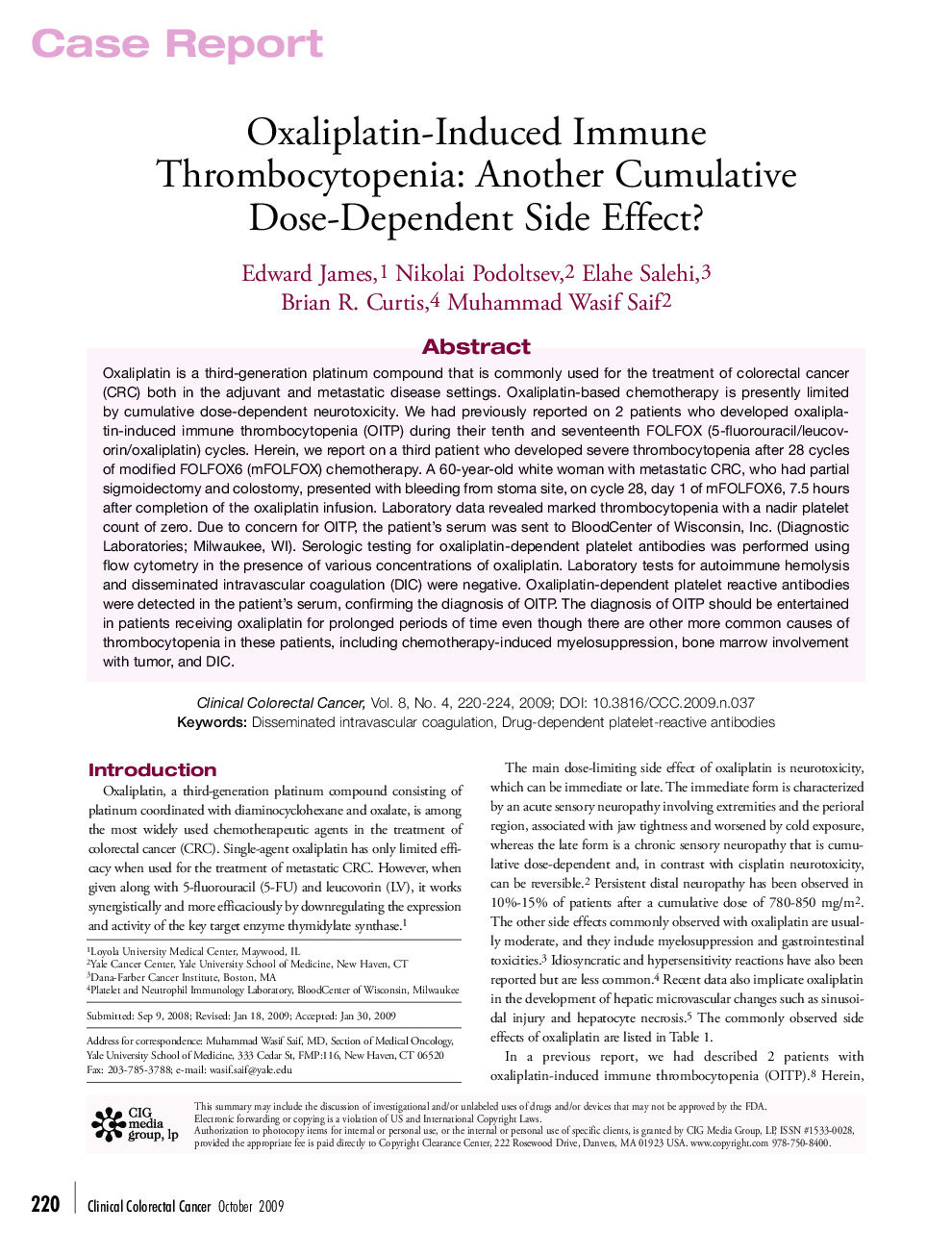| کد مقاله | کد نشریه | سال انتشار | مقاله انگلیسی | نسخه تمام متن |
|---|---|---|---|---|
| 2751740 | 1149489 | 2009 | 5 صفحه PDF | دانلود رایگان |

Oxaliplatin is a third-generation platinum compound that is commonly used for the treatment of colorectal cancer (CRC) both in the adjuvant and metastatic disease settings. Oxaliplatin-based chemotherapy is presently limited by cumulative dose-dependent neurotoxicity. We had previously reported on 2 patients who developed oxaliplatin-induced immune thrombocytopenia (OITP) during their tenth and seventeenth FOLFOX (5-fluorouracil/leucovorin/ oxaliplatin) cycles. Herein, we report on a third patient who developed severe thrombocytopenia after 28 cycles of modified FOLFOX6 (mFOLFOX) chemotherapy. A 60-year-old white woman with metastatic CRC, who had partial sigmoidectomy and colostomy, presented with bleeding from stoma site, on cycle 28, day 1 of mFOLFOX6, 7.5 hours after completion of the oxaliplatin infusion. Laboratory data revealed marked thrombocytopenia with a nadir platelet count of zero. Due to concern for OITP, the patient's serum was sent to BloodCenter of Wisconsin, Inc. (Diagnostic Laboratories; Milwaukee, WI). Serologic testing for oxaliplatin-dependent platelet antibodies was performed using flow cytometry in the presence of various concentrations of oxaliplatin. Laboratory tests for autoimmune hemolysis and disseminated intravascular coagulation (DIC) were negative. Oxaliplatin-dependent platelet reactive antibodies were detected in the patient's serum, confirming the diagnosis of OITP. The diagnosis of OITP should be entertained in patients receiving oxaliplatin for prolonged periods of time even though there are other more common causes of thrombocytopenia in these patients, including chemotherapy-induced myelosuppression, bone marrow involvement with tumor, and DIC.
Journal: Clinical Colorectal Cancer - Volume 8, Issue 4, October 2009, Pages 220-224